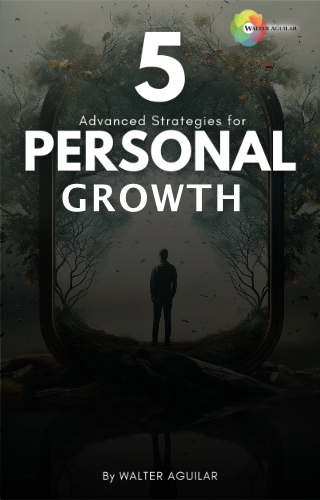Redefining Success and Overcoming Fear
As a COR.E Performance Dynamics Specialist, I understand how our past may have a significant impact on our current beliefs and actions, particularly in terms of fear of failure and feelings of inadequacy. Our upbringing and the values deeply entrenched in us have a tremendous impact on how we perceive ourselves and define success.
Influence of Our Past
The physical and emotional environment in which we grow up, mostly created by our parents’ principles, often revolves around values of survival and security. This is a logical result of our grandparents’ necessities in which success meant staying alive and guaranteeing a secure future. As a result, our parents may have passed down values that equate success with measurable accomplishments and the amassing of riches or status. While these principles might be motivating, they can also lead to a never-ending cycle of striving and unhappiness, generating a fear of failure and a continuous sense of not being good enough.
These ingrained beliefs might make us feel as if we are constantly falling short since we
continually evaluate ourselves to external validation rather than internal fulfillment. This
perspective can lead to a never-ending quest of the next goal, never enabling us to appreciate the
present or appreciate our current accomplishments.
Impact of Fear and Inadequacy
Fear of failure and feelings of inadequacy can immobilize us, preventing us from taking risks or exploring new experiences. They can keep us stuck in a cycle of negative self-talk and limited beliefs, hindering our growth and potential. The constant comparison with others, as well as the pursuit of society’s success criteria, may exhaust our mental and emotional energies, leaving very little room for contentment or development in our own lives.
Helpful tips from Eckhart Tolle’s book “Practicing the Power of Now”
Eckhart Tolle’s teachings in “Practicing the Power of Now” offer five helpful insights and strategies to overcome these deeply embedded fears and beliefs:
- Living in the Present: Tolle highlights the importance of staying in this present moment.
We can focus on the present moment rather than dwell on previous failures or our expectation of future problems. This approach enables us to effectively break free from the identities and expectations developed from our past and societal forces. - Observing the Mind: By becoming conscious observers of our thoughts and emotions, we can identify when our mind is influenced by outdated beliefs and anxiety-related symptoms. This self-awareness allows us to examine and release these negative tendencies.
- Acceptance: Tolle believes that accepting the present moment is essential for overcoming the pain of the past and worries about the future. Accepting our current circumstances, including our perceived failures and imperfections, might help us break free from the cycle of self-criticism and anxiety.
- Finding Inner Purpose: Rather than pursuing fulfillment through external achievements, Tolle promotes discovering our inner purpose. This entails staying in the present moment and acting from a place of calm and joy, rather than fear or a need for validation.
- Disconnecting from Ego: Our ego frequently fuels our fear of failure and inadequacy. Tolle recommends practices like meditation and mindfulness that can help us disconnect from our ego and create a sense of worth and fulfillment within ourselves, regardless of external accomplishments.
Using the suggestions provided in “Practicing the Power of Now,” we can begin to free ourselves from the errors of the past and redefine success based on to our own principles. By changing our viewpoint, we may overcome our fears of failing and feelings of inadequacy and live a life that is more meaningful and centered on the here and now.






